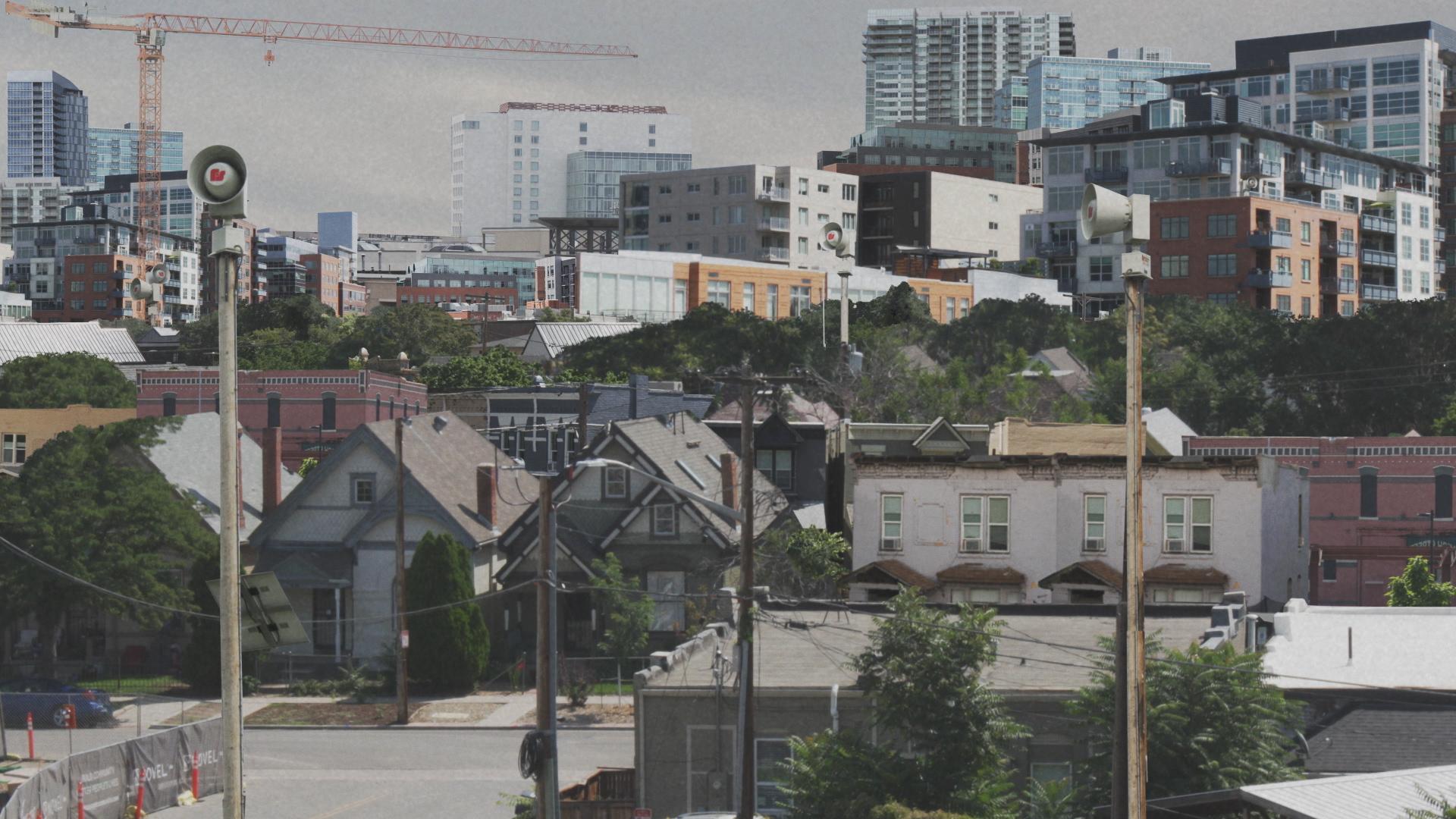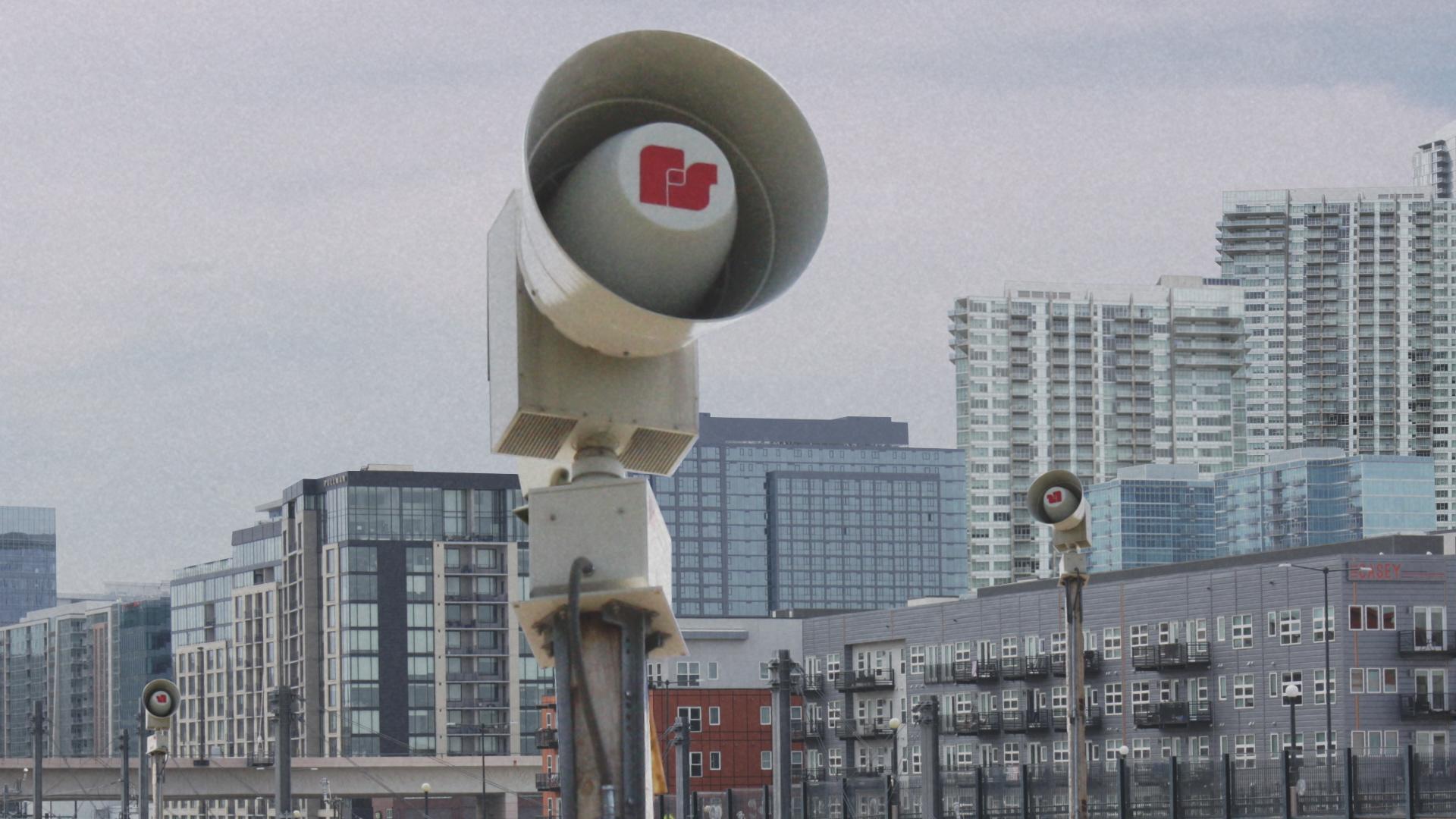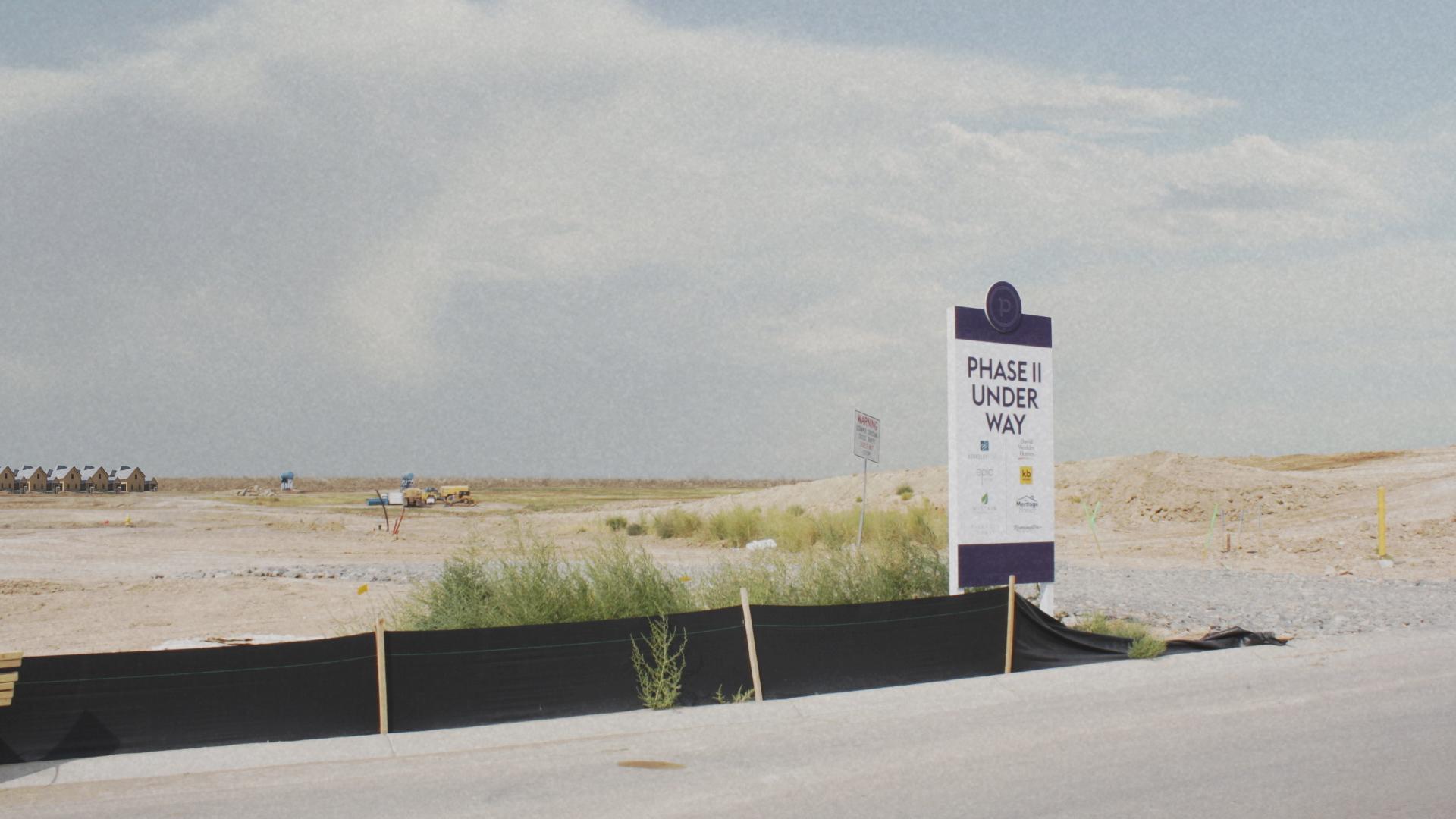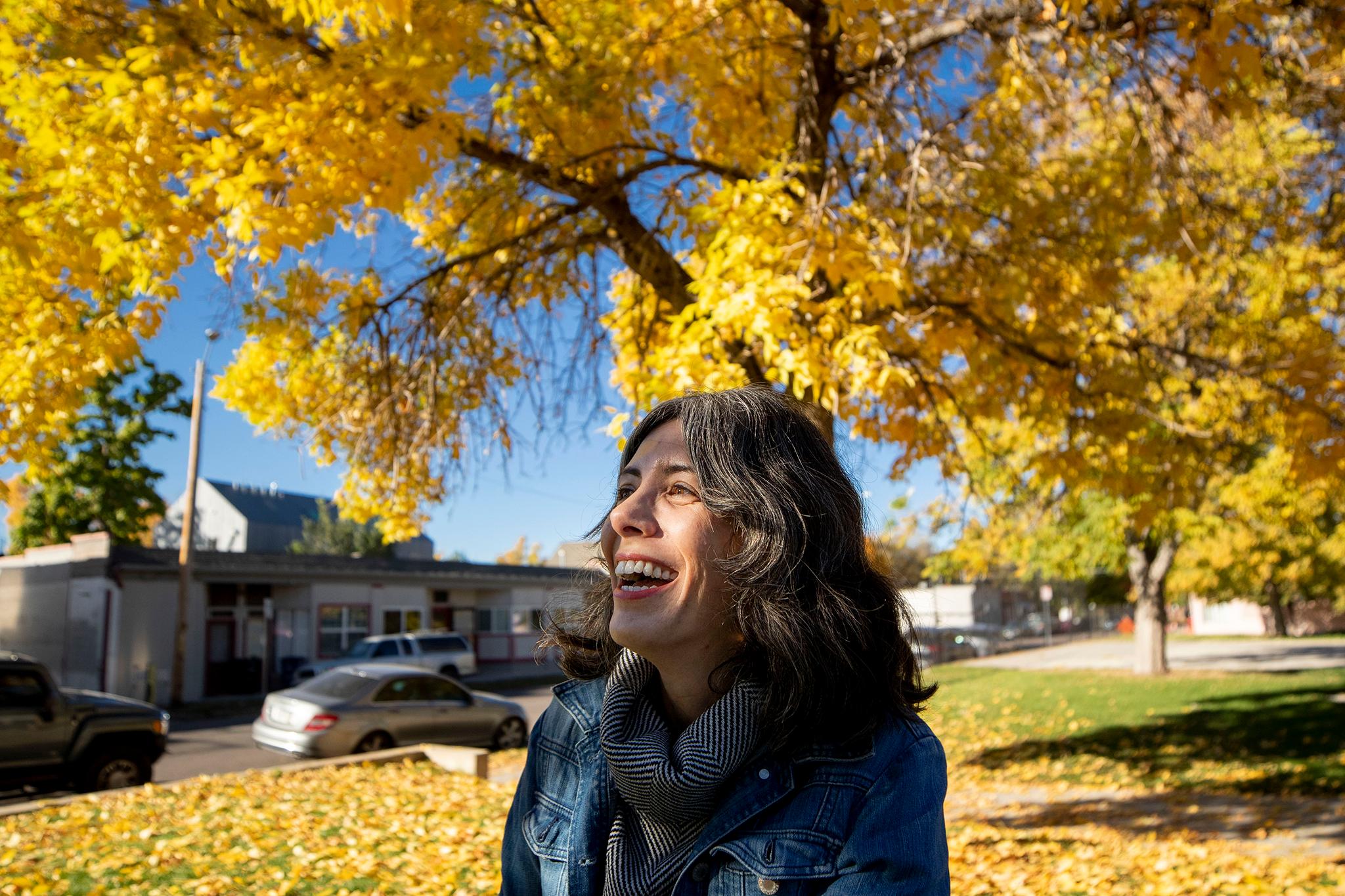Since moving to Denver in 2014, Kelly Sears has learned to identify the sounds of the various stages of development on the Northside as noises rip through her Highland home.
She's heard the crashes of houses being demolished, jackhammers pulverizing concrete, and the hammering of new buildings rising.
She's also witnessed her neighborhood and the city as a whole rapidly change.
The storefront of a mom-and-pop shop she once frequented now houses a business that offers vitamin injections, she said. And the small brick homes in the neighborhood around her, where working-class people once lived, have been torn down to make way for massive homes for highly paid tech workers lured to town by massive corporations and a city that caters to them over long-term residents.
Sears, an acclaimed animator, experimental filmmaker and University of Colorado Boulder professor, is a transplant directly from Los Angeles, who was raised on the outskirts of Boston. She acknowledges many of the changes happened long before she came to Denver. But even in the eight years she's lived in Highland, the neighborhood has shifted richer, whiter and more exclusive. Prices have skyrocketed since she arrived -- as they have throughout the city and most of the country -- and she wonders who this city's really for anymore.
All the new development -- which has resulted in mass displacement -- has her anxious. And as an animator, she naturally addresses those anxieties through her art.
For years, Sears has recycled and animated old media, from archival footage to detritus she finds at thrift stores. Her work often nods toward science fiction and horror and is filled with social commentary. She's monastic in her focus, cooped up inside, exploring animation techniques and challenging narratives about politics and identity in the United States.
Then came the pandemic.
Sears has been cautious about contracting and spreading COVID-19. The massive film festival parties and crowded art events she once gravitated toward quit happening. And she needed to get out of the house.
So she started masking and taking walks around Denver, with her decade-plus-old Canon Rebel camera in her hand, snapping thousands of photos of buildings, both old and new.
She's animated many of those into a dystopian short film, "Phase II," about predatory developers using sonic warfare to push working-class people out of their homes to make way for highrises, and the neighborhood-based grassroots resistance against the developers.

"I was really thinking about construction sounds ringing out and bouncing off of glass and steel buildings, and creating this different soundscape that was a low-grade assault within itself," Sears said.
"Phase II" premiered at the Seattle International Film Festival and will have its Denver debut at the Denver Film Festival -- oddly in the Colorado documentary section.

For a movie that's less than seven minutes, it has a lot going on.
A fictional street medic working with an anti-developer resistance movement narrates the film. It opens on the eastern plains of Denver, near Denver International Airport -- an area that has been largely one big yawn of grass since the airport opened in 1995. The skyline, far away in the distance, flickers.
A voice states: "Recording. We're recording another boom."

We're suddenly brought into the city skyline, bounced between images of highrises and cranes.
"We're tracking this latest cycle of displacement waged by the developers," the voice continues. "They've managed to drive out most residents near downtown."
A nerve-wracking score by Maile Costa Colbert plays, as we learn that a "holdout neighborhood refused to leave." At street level, in Five Points, we learn that developers, who are cozying up with city officials in closed-door meetings, have been using "sonic assaults" to push out residents who were resisting displacement to stimulate development.
Some of the residents flee, after being assaulted by the noise at protests, as a team of medics tries to care for them. But eventually, the medics develop preventive tactics so neighbors survive the sonic assault. Then construction stops.

So the developers shift focus from the outskirts of downtown to a stretch of grass in the plains, where they begin to build massive single-family homes. The people working on the development and potential buyers find themselves falling ill. Promises of rising home values are unmet and the suburban development falls into disrepair.
"Phase II" gave Sears a chance to explore potential futures for the city -- one where residents resist massive developments and displacement.
In recent years, as housing has become a more pressing need, groups like YIMBY Denver have cast developers as the good guys. After all, they're the ones who can build much-needed housing.
But Sears' take is one of skepticism. The developers, as she told it, are predatory, happy to boot people from their long-term homes by any means necessary to make a profit. And she imagines them using sonic warfare tools -- the sort deployed at protests by police -- to sweep the city as they see fit.
The big question she explored: "Where does militarized violence meet capitalist violence?"
Long legacies of racist and exclusionary housing policies define Denver development and that in many other cities, Sears argued, and developers are motivated by profit rather than goodwill.
Phase II is one of several films in a series she's working on, "narratives that arise at the intersection of manifest destiny, capitalist expansion, climate crisis and collective resistance and refusal."
Sears doesn't claim to offer easy solutions to these issues.
"There's been so many cycles of displacement and redefinition here that I have no claim to speak like 'I was here, back when.'" she said. "[Gentrification] has been in process for a long time here and elsewhere."
And yet Denver isn't alone or particularly unique in facing issues of displacement and rapid development, she said. That struck her as she drove into Seattle from the Tacoma Airport for the film's premiere.
"I was looking at the skyline, and I was like, 'Wow, this is a different story.' What happened in Seattle had a different timeline," Sears said. "But also, it's a similar story in how that city developed in relationship with business, in relationship with attracting more revenue, and in how the city was transformed."













